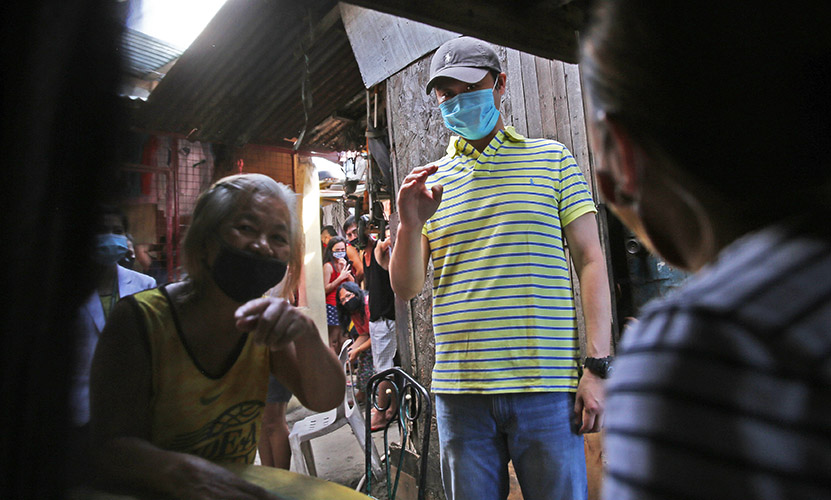Senator Win Gatchalian is urging the national government to grant additional Internal Revenue Allotment (IRA) shares to Local Government Units (LGUs) that remain under Enhanced Community Quarantine (ECQ) until May 15 to ensure unhampered delivery of basic needs to the public during this difficult time.

Gatchalian pointed out that most LGUs are now grappling for funds to provide for the basic necessities of their constituents – such as food and medical supplies – as they have exhausted all their cash position.
Aside from the earlier approval of the ‘Bayanihan Grant to Cities and Municipalities’ which is equivalent to one month of LGU’s IRA totaling P30.824 billion, Gatchalian said another round of COVID-19 IRA can help LGUs move towards providing continued medical response and relief efforts.
Gatchalian said businesses at this time have not renewed their permits and that real property taxes, where half of the local government’s revenue come from, remain uncollected.
“Kalahati ng kita nila hindi pa pumapasok, ibig sabihin wala nang cash ang ating mga local governments. The LGUs have exhausted every single centavo of their cash in the first 45 days of the ECQ which means that the extension until May 15 is a big problem to a lot of them. Kaya kailangan uli silang saklolohan ng national government,” Gatchalian said.
The Senate Vice Chairman on Economic Affairs said the situation affects the assistance being provided by the local governments to their constituents.
The senator prodded the national government anew to expedite the implementation of the Social Amelioration Program (SAP), noting that as of April 30 only 53% or half of the targeted families for the program, have been served. The DILG has originally given LGUs a deadline of until April 30 to grant the said subsidy to their constituents. The deadline has been extended for another week as requested by some LGUs.
Gatchalian said Republic Act 11315 or the law institutionalizing the use of Community-Based Monitoring System (CBMS) better known as the CBMS Act, should be implemented to expedite the delivery of SAP nationwide. The CBMS Law refers to an organized technology-based system of collecting, processing and validating necessary disaggregated data that may be used for planning, budgeting and implementation of government programs geared towards poverty alleviation and economic development. It involves the generation of data at the local level which serves as basis in targeting households.
The Department of Social Welfare and Development (DSWD) has cited miscommunication and confusion with the LGUs on the beneficiaries’ data as one of the challenges for the slower-than-expected distribution of SAP.
“Huling-huli na ang gobyerno. Dapat ay naibigay na ang ayuda nuon pa. Nevertheless, with this ECQ extension and with the learnings in the first tranche of distribution, I hope there won’t be any problems in the days ahead,” Gatchalian ended.


